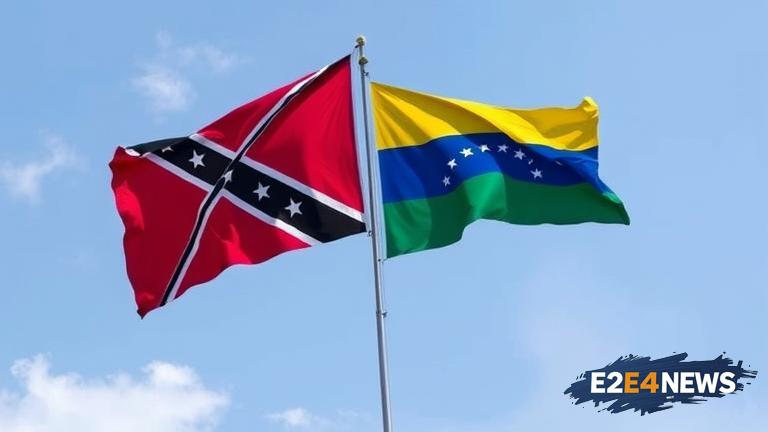The recent decision by Trinidad and Tobago to support the US stance on Venezuela has sent shockwaves throughout the Caribbean region, with many leaders condemning the move as a reckless betrayal of Caricom’s principles. The US-Venezuela standoff has been a longstanding issue, with the US imposing economic sanctions on Venezuela and recognizing opposition leader Juan Guaido as the country’s interim president. However, Caricom has traditionally maintained a neutral stance on the issue, advocating for a peaceful resolution through dialogue and diplomacy. Trinidad and Tobago’s sudden shift in stance has been seen as a departure from this neutral stance, and has sparked widespread criticism from regional leaders. Many have accused Trinidad and Tobago of prioritizing its own interests over the collective interests of the region, and of undermining the principles of regional solidarity and cooperation. The move has also been seen as a blow to Caricom’s credibility and effectiveness, and has raised questions about the region’s ability to speak with a unified voice on key issues. Despite the criticism, Trinidad and Tobago has defended its decision, citing concerns about regional security and stability. However, many have argued that the country’s stance is misguided and will only serve to exacerbate the situation, rather than resolving it. The US-Venezuela standoff has already had significant humanitarian and economic impacts on the region, with many Venezuelans fleeing to neighboring countries in search of food, shelter, and other basic necessities. The situation has also had a significant impact on regional trade and commerce, with many businesses and industries affected by the economic sanctions. In light of these challenges, many have argued that Caricom should be working to promote a peaceful resolution to the conflict, rather than taking sides or pursuing unilateral actions. The controversy has also highlighted the need for greater regional cooperation and coordination, particularly in areas such as security, trade, and diplomacy. As the situation continues to unfold, it remains to be seen how Caricom will respond to Trinidad and Tobago’s stance, and what implications this will have for the region as a whole. The incident has also raised questions about the role of smaller states in international relations, and the challenges they face in navigating complex geopolitical issues. Despite these challenges, many have argued that smaller states can play a crucial role in promoting peace, stability, and cooperation, particularly in regions such as the Caribbean. The US-Venezuela standoff has also highlighted the need for greater international cooperation and diplomacy, particularly in areas such as conflict resolution and humanitarian assistance. As the international community continues to grapple with the challenges posed by the standoff, it is clear that a peaceful resolution will require a concerted effort from all parties involved. In the meantime, the people of Venezuela continue to suffer, and the region remains on high alert as the situation continues to unfold. The incident has also sparked a wider debate about the role of Caricom in promoting regional security and stability, and the need for greater cooperation and coordination among member states. Many have argued that Caricom should be playing a more proactive role in promoting peace and stability in the region, particularly in areas such as conflict resolution and humanitarian assistance. The controversy has also highlighted the need for greater transparency and accountability within Caricom, particularly in areas such as decision-making and policy implementation. As the region continues to navigate the challenges posed by the US-Venezuela standoff, it is clear that a more coordinated and cooperative approach will be needed to promote peace, stability, and prosperity. The incident has also raised questions about the impact of external factors on regional relations, and the need for greater awareness and understanding of the complex geopolitical dynamics at play. Despite these challenges, many have argued that the Caribbean region has the potential to play a significant role in promoting peace, stability, and cooperation, particularly in areas such as trade, security, and diplomacy.





